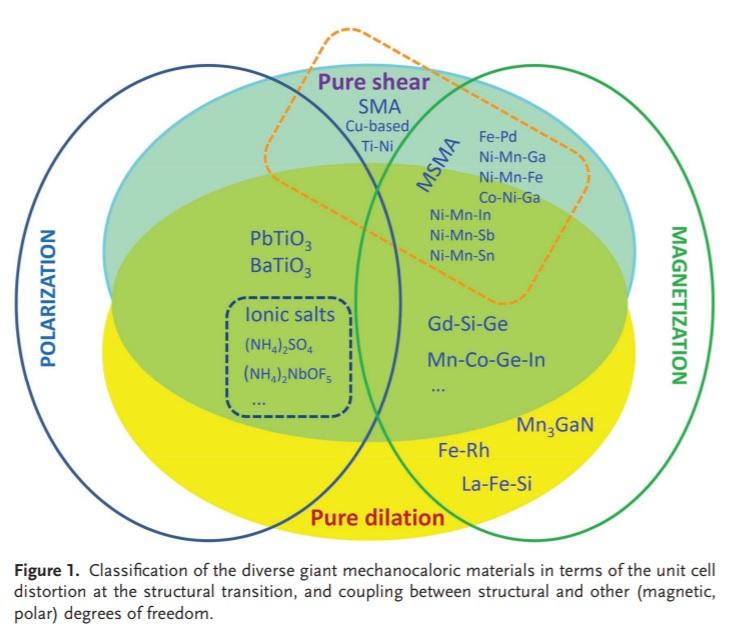People involved: P. Ibarra and C. Garcia
The magnetocaloric effect (MCE) is a magneto-thermodynamic phenomenon in which a temperature change of a suitable material is caused by exposing the material to a changing magnetic field. In that part of the refrigeration process, a decrease in the strength of an externally applied magnetic field allows the magnetic domains of a magnetocaloric material to become disoriented from the magnetic field by the agitating action of the thermal energy (phonons) present in the material. If the material is isolated so that no energy is allowed to (re)migrate into the material during this time, (i.e., an adiabatic process) the temperature drops as the domains absorb the thermal energy to perform their reorientation. The randomization of the domains occurs in a similar fashion to the randomization at the curie temperature of a ferromagnetic material, except that magnetic dipoles overcome a decreasing external magnetic field while energy remains constant, instead of magnetic domains being disrupted from internal ferromagnetism as energy is added. Our research mainly focuses on materials produced by ultrafast cooling such ribbons obtained by melt-spinning and microwires obtained the Taylor Ulitovskii technique.

[1] A.M. Tishin, Y.I. Spichkin, Int. J. Refrig. 37 (2014) 223
[2] T. Gottschall, A. Gracia-Condal, M. Fries, A. Taubel, L. Pfeuffer, L. Mañosa, A. Planes, K. P. Skokov, O. Gutfleisch, Nat. Mater. 17 (2018) 929.
[3] K.A. Gschneidner Jr., K. Pecharsky, A.O. Tsokol, Rep. Prog. Phys. 68 (2005) 1479.
[4] L. Mañosa, and A. Planes, Adv. Mater. 29 (2017) 1603607.